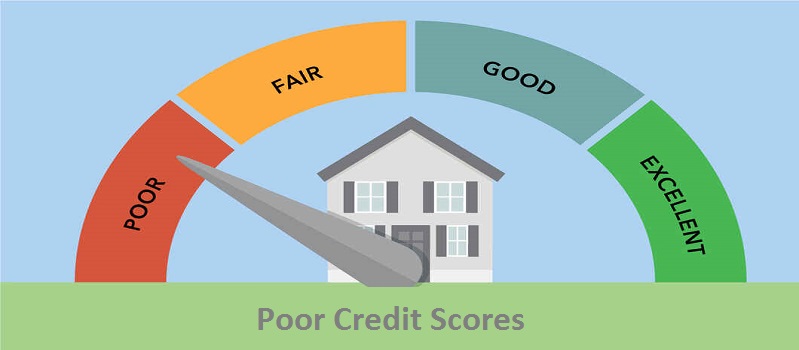Having a good credit score is essential for many aspects of life, from applying for a loan to buying a house. Unfortunately, many of us don’t understand how credit works or how to build and maintain a good score. This blog will explain the basics of credit and how to ensure your credit score stays healthy.
Ways To Maintain A Good Credit Score
1. Establish Credit
Establishing credit is an essential step in building and maintaining a good credit score. A credit score is a numerical representation of your creditworthiness based on your credit history and other factors.
To establish credit, you may need to open a credit card, take out a loan, or even sign up for a utility account in your name. It’s essential to make timely payments on your debts, stay on track with your credit cards, and stay caught up on payments.
By establishing credit and using it responsibly, you can build and maintain a good credit score, which can have many benefits in the long run.
2. Understand Your Credit Reports and Scores
To understand your credit reports and scores, you’ll need to obtain copies of your credit reports from credit bureaus. Once you have your credit reports, you’ll want to review them carefully for any errors or inaccuracies.
If you find any mistakes, you’ll need to dispute them with the credit bureau(s) that reported them. In addition to reviewing your credit reports, you’ll also want to check your credit scores. Many websites and credit card companies offer free credit score monitoring so that you can track your scores over time.
Understanding your credit reports and scores can help you identify any issues affecting your credit. After that, you can take steps to improve your credit and maintain a good credit score.
3. Manage Credit Responsibly
A good credit score depends on responsible credit management. High credit scores make it easier to qualify for loans, credit cards, and other financial goods and may cut interest rates and fees.
To manage credit responsibly, you’ll want to do the following:
- Make timely payments on all of your debts. Late or missed payments can damage your credit score.
- Avoid applying for too much new credit. Each time you apply for credit, it can lower your credit score.
- Monitor your credit reports and scores regularly. This will help you identify any issues that may be affecting your credit.
By managing your credit responsibly, you can build and maintain a good credit score, which can have many benefits in the long run.
4. Pay Bills on Time
Paying bills on time is essential for building and maintaining a good credit score. When you pay your bills on time, you demonstrate to creditors that you are responsible and reliable.
This can help you qualify for lower interest rates on loans and credit cards and even make it easier for you to rent an apartment or buy a home. Here are some suggestions to help you make timely payments on your bills:
- Set up automatic payments: Many banks and credit card providers offer the option to set up automatic payments for your bills. This ensures that your bills are paid on time, even if you forget to pay them manually.
- Make a schedule: Make a schedule of when your bills are due and mark the dates on your calendar. This will help you stay organised and pay your bills promptly.
- Use a budgeting app: A budgeting app can help you keep track of your bills and spending. You can set reminders for yourself to pay your bills, and the app will alert you when a payment is due.
By following these tips, you can pay your bills on time and build and maintain a good credit score. This can open up many financial opportunities for you in the future.
5. Keep Credit Balances Low
Maintaining a good credit score is essential for several reasons. Some of them might be the ability to qualify for loans, credit cards, and other financial products at favourable terms. One key factor that goes into your credit score is your credit utilisation.
This is the amount of credit you’re using compared to the amount of credit you have available. To keep your credit utilisation low and maintain a good credit score, it’s essential to keep your credit balances as low as possible.
This means paying off your credit card balances monthly and avoiding taking on new debt whenever possible. By keeping your credit balances low, you’ll be able to demonstrate to lenders that you’re a responsible borrower. Also, you will be able to manage your credit effectively.
6. Avoid New Credit Inquiries
To build and maintain a good credit score, it is essential to avoid new credit inquiries as much as possible. When you apply for a new line of credit, such as a credit card or loan, the lender will typically conduct a credit check to assess your creditworthiness.
This process involves taking out your credit report and reviewing your credit history, including any outstanding debts and payment history. Each time a lender checks your credit, it can have a negative impact on your credit score.
To avoid this, try to limit the number of credit inquiries you make and only apply for new credits when necessary.
How To Get Loans If You’re Unemployed?
If you are currently unemployed and in need of a loan, there are several options available to you. One option is to consider guaranteed loans for the unemployed. These types of loans are designed specifically for individuals who are out of work. Or they may have difficulty securing traditional loans due to a lack of income.
To qualify for a guaranteed loan, you may need proof of your employment status. Also, you need to demonstrate that you have a source of income, such as unemployment benefits or a pension.
In addition to these loans, you may also want to consider alternative lending options. These lenders, such as peer-to-peer lending platforms or online lenders, may be more flexible in their lending criteria. They may be willing to consider factors beyond your employment status when evaluating your loan application.
If you are unable to secure a loan through traditional or alternative lenders, you may want to consider working with a financial advisor or credit counsellor. They can help you understand your options and identify the best solution for your financial needs.
Conclusion
Having a good credit score is essential for financial stability and success. Understanding credit and how to build and maintain a good score is the key to achieving and maintaining a healthy financial life. Building credit is a long-term commitment, but it is well worth the effort.
Taking the time to understand your credit score, monitor your account, and pay your bills on time are all essential steps to understanding credit and maintaining a good score.
You can better qualify for loans, credit cards, and other financial products with a good credit score. Build your financial security, and enjoy peace of mind with good financial standing.

Emma Anderson is a financial advisor at Quickloanslender who always believes in researching hard to know her clients’ financial problems. She takes the time to understand their financial wants and needs to write the blogs on them as the solutions. In her long 14 years of experience, she has written plenty of blogs on the financial and business sectors of the UK.
Emma Anderson has been recognised for her work in financial planning and her blogs are regularly published in the website of Quickloanslender. As far as her educational qualification is concerned, she has done Masters in Accounting and Finance, and done PG Diploma in Creative Writing.






